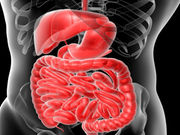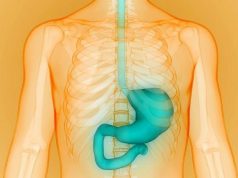New scoring model includes five factors predictive of GI bleeding in patients taking oral anticoagulants
FRIDAY, June 2, 2017 (HealthDay News) — For patients taking oral anticoagulants, a new model can predict acute gastrointestinal (GI) bleeding, which is associated with increased risk of all-cause mortality, according to a study published online May 19 in the Journal of Gastroenterology and Hepatology.
Akira Shimomura, M.D., from the National Center for Global Health and Medicine in Tokyo, and colleagues followed a cohort of 508 patients taking oral anticoagulants (66 direct oral anticoagulant users and 442 warfarin users). The authors developed the bleeding model by multivariate survival analysis.
The researchers noted 42 GI bleeds (8.3 percent) during a median follow-up of 31.4 months: 42.8, 50.0, and 7.1 percent in the upper, lower, and middle GI tract, respectively. The cumulative five-year probability of bleeding was 12.6 percent, while the 10-year probability was 18.5 percent. The cumulative incidence of all-cause mortality was significantly higher for patients who bled (hazard ratio, 2.9). GI bleeding was predicted by absence of proton pump inhibitor therapy, chronic kidney disease, chronic obstructive pulmonary disease, history of peptic ulcer disease, and liver cirrhosis, in multivariate analysis. Using these five factors, the C-statistic for the new predictive model was 0.65, which was higher than the HAS-BLED score of 0.57.
“Gastrointestinal bleeding increased the risk of subsequent mortality during follow-up of anticoagulated patients, highlighting the importance of prevention,” the authors write.
Copyright © 2017 HealthDay. All rights reserved.








